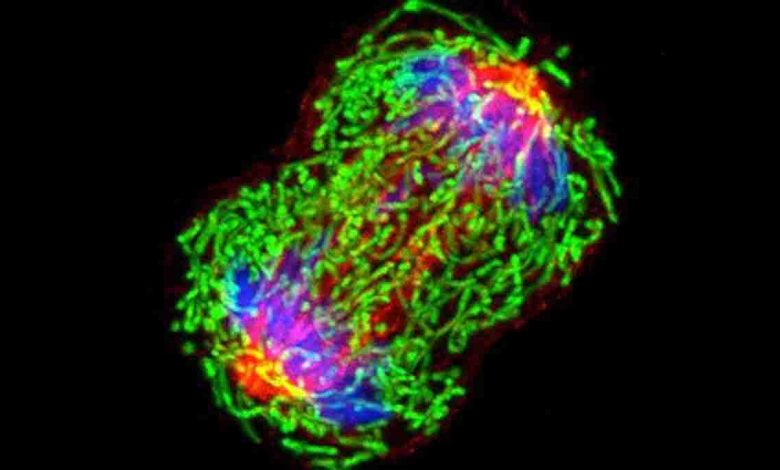Increasing prevalence of Cancer, a major public health concern

Thursday, 16 February 2023 | Dr BKS Sanjay & Dr Gaurav Sanjay
GUEST COLUMN

Cancer, in simple words is defined as the uncontrolled growth of the cells, having a tendency of recurrence and which may distally spread to the other organs.Cancer is not new to humans as it is perceived today. Its presence has been recorded in the ancient Egyptian and Indian medical scriptures dating back to about 5000 years.
The most significant factors for etiology of cancer are prolonged longevity, adulteration of food and water, pollution of air; in addition to lifestyle changes like poor diet, lack of physical activity and being overweight. The important lifestyle factors which are known to cause cancer are use of tobacco and smoking. Tobacco chewing can cause oral cancer whereas smoking can cause lung cancer. The consumption of alcohol is linked with liver, stomach and breast cancer. It has been found that there is a synergetic impact of smoking and drinking alcohol in the development of several types of cancer.
It has been estimated that 30 per cent of all cancer in developed nations and 20 per cent in the developing nations are linked to the diet we consume.It is rightly said that we are what we eat. Our diet plays a vital role in maintaining good health. Tea is rich in polyphenols and green tea has 30 per cent polyphenols by weight. Polyphenols reduce the formation of free radicals in the body which can damage the normal cells and can increase the growth of cancer cells. We should avoid consumption of alcohol and tobacco in any form; rather, we should make the habit of consuming fresh fruits and green vegetables.
In our opinion, patients should know the early symptoms of cancer. The common early warning symptoms are abnormal lumps or bumps, unexplained fever, sudden weight loss, fatigue and pain which cannot be controlled with ordinary painkillers. If there is any suspicion of cancer growth then one should report to the local healthcare facilities at the earliest. Sooner the detection better the results.
Investigations like CT, MRI, PET and bone scans of suspected organs give an idea about the local and distal spread of the cancer.The health care worker should make the effort to have the definitive diagnosis of cancer which can be made with tissue biopsy only. The tissue diagnosis not only tells the origin of cancer but it also grades its invasiveness to the surrounding tissue. Many patients consult the doctors with delayed presentation of cancer due to lack of awareness about the problem, non-availability of the healthcare services and poverty. Once the diagnosis is confirmed then treatment should be started. Approach of the treatments and cure depends upon the type, size and spread of the tumor in the surrounding part and in distal part of the body.
As we know that if the cancer cells are not removed in time or are missed during removal then these remaining cells will not only grow in that area but may spread to the other parts of the body. As there are various means to treat the cancer like local removal of the cancer, reconstruction of the removed part, chemotherapy and radiotherapy to kill the cancerous cells in the local part and in distal parts of the body. Sometimes the cancer spreads in multiple organs then whole body radiation therapy is given to control the growth and spread of cancer cells. The treatment modalities in the cancer patients are based mainly on whether it is palliative or curative.
The most important factor which influences the outcome of the treatment depends upon the age, comorbidities of the patient, type, size, stage and quality of surgery. Most patients consult the doctor with a delayed presentation. In rare cases, it may be missed by a doctor also, especially in areas with poor health infrastructure setup. Cancer awareness and early detection should be a priority for all. It will be worthwhile to spread the message that prevention is better than cure and realize the importance of early detection. This year’s theme of the world cancer day was to “close the care gap” which is about understanding the inequalities in cancer care and taking actions to make the necessary progress to deal with them.
Cancer treatment is nowadays done with a multi-disciplinary approach because cancer is such a disease which affects not only the one organ but can involve other organs as well like lung, liver, brain and bones etc. Cancer is the second leading cause of death in the world.The common cause of death in the cancer patients are infection, recurrence of cancer and distal spread to other organs mainly chest and brain etc. The distal spread leads to lung, liver, kidney, heart failure leading ultimately to multi organ failure.
Health, education and nutrition are the fundamental needs for the growth of any person. If we analyze the human development index report of 2021-2022 released by the United Nations development program, it revealed that India ranks 132 out of 190 countries and territories. India has improved its ranking but not too significantly.
Budget spending on health is also increasing and it is deemed to rise to 2.5 per cent by 2025. The government of India is trying very hard to raise the standard of living by providing free, subsidized food grains and housing to the underprivileged people but despite the efforts nearly 20 per cent of the Indian population still lives below the poverty line. Though India is growing, the growth story reveals that 40 per cent of the wealth of the nation is in the hands of the 1 per cent population and only 3 per cent of wealth is in the hands of the poorest 50 per cent of the population. If we analyse more about the richest people of our country then ten of them are having more than 10 per cent (USD 380 billion) of the wealth of the nation.
The treatment of cancer is very expensive in India especially for the people living below the poverty line. It is reported that certain cancer treatments can go up to Rs 20 lakhs. In such a scenario, it is better to follow the dictum, “prevention is better than cure”. If India wants to become health conscious then it has to make changes in its policies so that good quality health, education and nutrition are accessible at subsidized rates to all.
(The authors are Dehradun based orthopaedic surgeons. Views expressed are personal)





